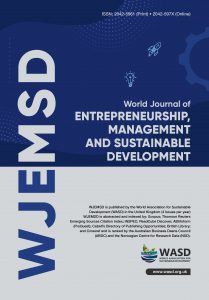(10) Sudan’s experience in the legal protection of children from exploitation and recruitment, Prof Badreldin Hamad
 Prof. Badreldin Abdalla Hassan Hamad
Prof. Badreldin Abdalla Hassan Hamad
Professor of Public International Law
Faculty of Law and Judicial studies
The Islamic University of Madinah.
Kingdom of Saudi Arabia
Email: abhassan@mail.ru
DOI: 10.47556/J.WJEMSD.19.3-4.2023.10
PURPOSE: The purpose of this paper is to study Sudan’s experience in the legal protection of children from exploitation and recruitment, and the most important mechanisms for protecting children in Sudan.
DESIGN/METHODOLOGY/APPROACH: An analytical research method is used. The researcher collected and analysed Sudanese laws related to the subject of the research, and collected and analysed data on child soldiers, their demobilisation, disarmament and reintegration into society.
ORIGINALITY: The originality of this research is represented in answering a set of questions, such as what are the new laws issued by Sudan in the field of protecting child soldiers? What are the mechanisms for protecting child soldiers and what is their effectiveness? What are the suggestions for improving and developing the protection of children from exploitation and recruitment? And how to eliminate the phenomenon of child recruitment?
FINDINGS: The most important result is the issuance of many Sudanese laws to protect children. Sudan’s ratification of many international treaties and covenants confirms Sudan’s interest in protecting children during peace and armed conflict. The most important recommendations are the need to develop a strategy to resolve current armed conflicts and avoid their occurrence in the future by spreading the culture of peace and living in peace. We must also look to end the phenomenon of child exploitation and recruitment, disarm child soldiers, demobilise and integrate them into society, and punish armed groups that exploit and recruit children.
KEYWORDS: Protection; Child Soldier; Child Law; Convention; Recruitment; Exploitation; Disarmament; Demobilisation; Reintegration.

